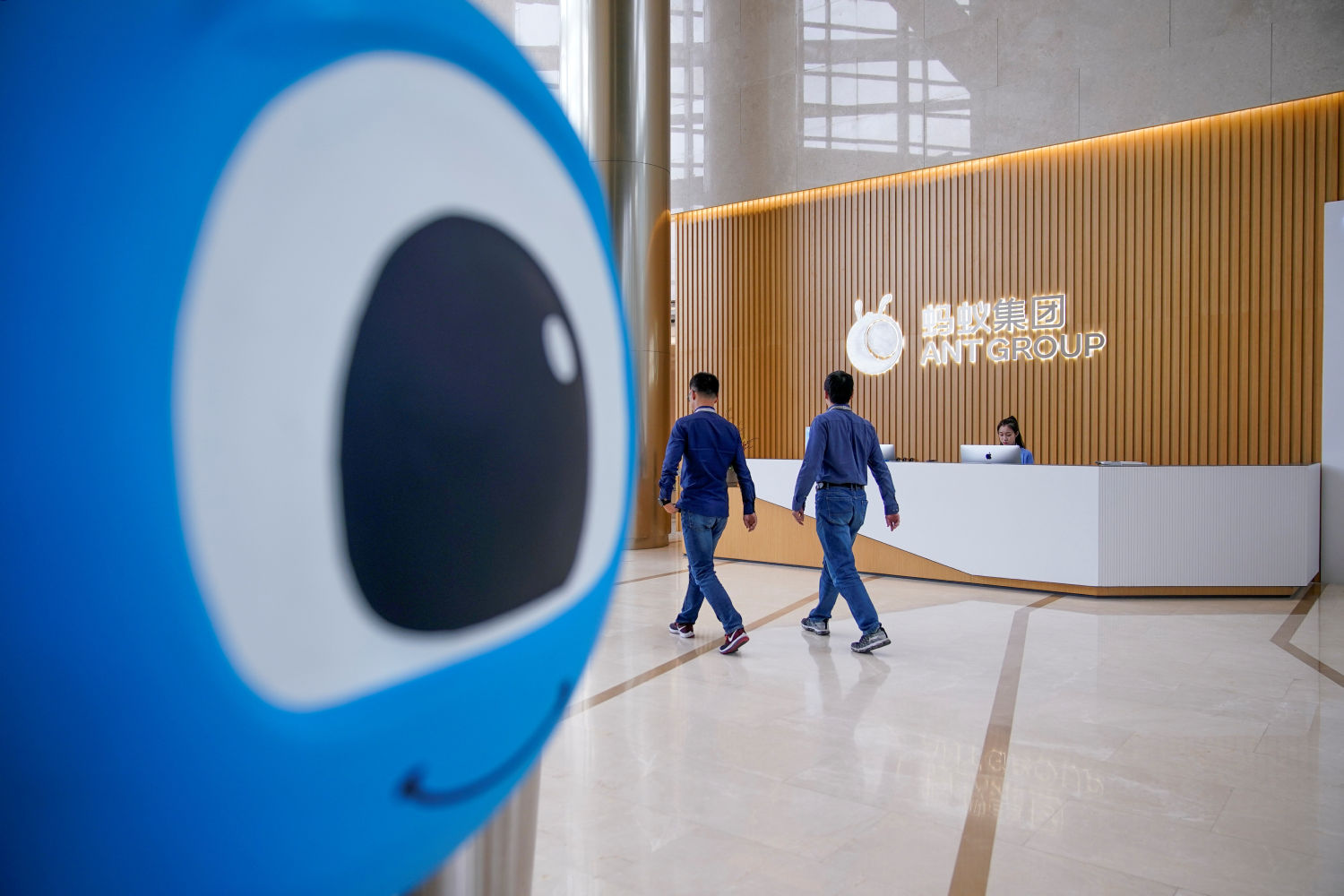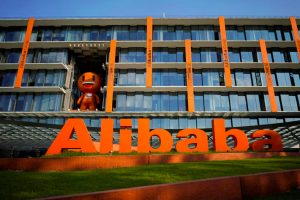(ATF) China’s regulatory revamp of Jack Ma’s Ant Group is set to transform the fintech giant into a financial holding company – yet it appears to have cooled investor appetite for a revived listing at home.
Ant Group was previously set to be the biggest IPO ever last November, tipped to reap a $37-billion windfall, until regulators ordered the dual listing to be cancelled just two days before it was due to launch on stock exchanges in Hong Kong and Shanghai.
On Saturday, regulators hit parent company Alibaba with a $2.75 billion fine for breaches of anti-monopoly rules. And, as China tightens control of its internet giants, Alibaba’s subsidiary Ant Group has been forced to restructure itself in a way that will drastically alter its financial outlook.
Analysts and investors based both in Hong Kong and the US now seem convinced that the state crackdown on the sector is likely to limit the prospects of Ant, by lowering its expected profitability and valuation.
“I think there’s still a lot of questions about what a post-restructured Ant looks like,” said Daniel Kern, chief investment officer of TFC Financial Management in Boston, whose firm has about $3 million of Alibaba stock through the funds of other firms.
Last year, Ant’s valuation was touted at $315 billion for its IPO. Now, even before news of the revamp, sources told Reuters some global investors valued Ant around $200 billion based on its 2020 performance.
Leland Miller, CEO of US-based consultancy China Beige Book, is among those who expects Ant’s IPO plans to be resuscitated at some point, but said he doubted authorities are in a hurry.
One Hong Kong-based investor, whose investment in Ant’s botched 2020 IPO was refunded, expects its listing to be a couple of years away.
Ant declined to comment on its IPO plans and possible changes in valuation.
William Huston, founder and director of institutional services at independent investment advisory firm Bay Street Capital Holdings said Ant as a bank or financial company IPO was a different investment thesis than Ant as a fintech company.
Huston reduced the firm’s positions in Alibaba last year from 8% of the portfolio to less than 1%. “We were initially taking that position early on, thinking Ant would eventually IPO,” he said. “It is a significantly different opportunity now. There is no hurry to jump into investing in a bank.”
34 internet companies warned
Meanwhile, the crackdown will affect many more companies. On Tuesday, nearly three dozen internet lenders attended a meeting with Chinese regulators, who warned them to stop using practices banned under the country’s new anti-monopoly laws, such as forcing vendors to use their platform exclusively.
The State Administration for Market Regulation (SAMR), which fined Alibaba on Saturday, said it met with 34 companies, including Tencent, Bytedance and JD.com and ordered them to conduct ‘self-inspections’ within one month. Those found to have broken the new regulations would face “severe punishment”, it said.
The meeting was intended to “guide” the companies in their work, the regulator said in a statement. Despite what it described as “positive” development of the platform economy in China, “harm can’t be neglected and no time can be wasted in correcting their practice according to the law,” SAMR said.
China issued new anti-monopoly guidelines in February targeting internet platforms that bar a range of activity, including forcing merchants to choose between the country’s top internet players, a long-time practice in the market.
Anti-monopoly drive explained
The Chinese government published a simplified explanation of its “anti-monopoly” drive in the Party newspaper the People’s Daily. To date, antitrust rules have mainly been used against Chinese tech giants, especially in the e-commerce sector.
In an editorial, the paper asked: “Are the targets of the antitrust law all big firms? Not necessarily, it said.
The law aimed to combat anti-monopolistic behavior, and was not calculated according to the size of market entities. “Just like a group of students, the teacher must be criticising the bear child who is always mischievous and bullying his classmates, not necessarily the biggest one,” it wrote.
It outlined three types of statutory monopolistic behaviors: business operators who reach a monopoly agreement; business operators who abuse their dominant market position; and business operators who have or may have the effect of eliminating or restricting competition.
Traditionally, when the Chinese government wants to highlight a new law, it will first take down a big name. This is known as ‘Killing the monkey to scare the chickens.’
The paper also asked whether the scope of the anti-monopoly law was limited to China? No, it said.
China’s anti-monopoly law stipulates that this law applies to monopolistic behaviour in economic activities within the territory of the People’s Republic of China, but claims that it also applies to monopolistic behaviour outside China that have the effect of eliminating or restricting competition in the domestic market.
The editorial noted the US Department of Commerce’s frequent denial of mergers and acquisitions of technology companies in other countries. The paper said this was an example of such a case.
On March 29, American Applied Materials Corporation (AMAT), one of the world’s largest semiconductor equipment manufacturers, announced that it had terminated the acquisition of Kokusai, a subsidiary of the former Hitachi Group, because it had not obtained the approval of the Chinese regulatory agency. As the acquisition was eventually terminated, Applied Materials had to pay a termination fee of US$154 million.
The editorial also noted new features of antitrust behaviour in the mobile Internet era.
Traditional enterprises, whether they are production-oriented, trade-oriented or platform-oriented, are subject to the same logic of rising marginal costs. When the price of goods or services equals the marginal cost, the scaled expansion of the company creates a clear profit and loss boundary, which makes traditional companies unable to continue to expand the scale of business.
In recent years, platform-based enterprises based on mobile Internet have developed rapidly. The biggest difference between this type of enterprise and traditional enterprises is that the margin cost can fall steadily for a long time, and in theory can even be infinitely close to zero. For example, for an online software system, one user is the same as 10,000 users. For each additional user, the marginal cost will drop a little.
The consequence of this model is that ‘traffic’ determines success or failure. In order to maintain the ‘traffic’, leading Internet platform companies have an incentive to adopt huge subsidies, use low-price dumping and other improper means.
Therefore, when the “invisible hand” of the market’s spontaneous adjustment becomes weaker and weaker, the “visible hand” must be better used to take up legal weapons to maintain a fair market competitive order, it said.
With reporting by Reuters.
























